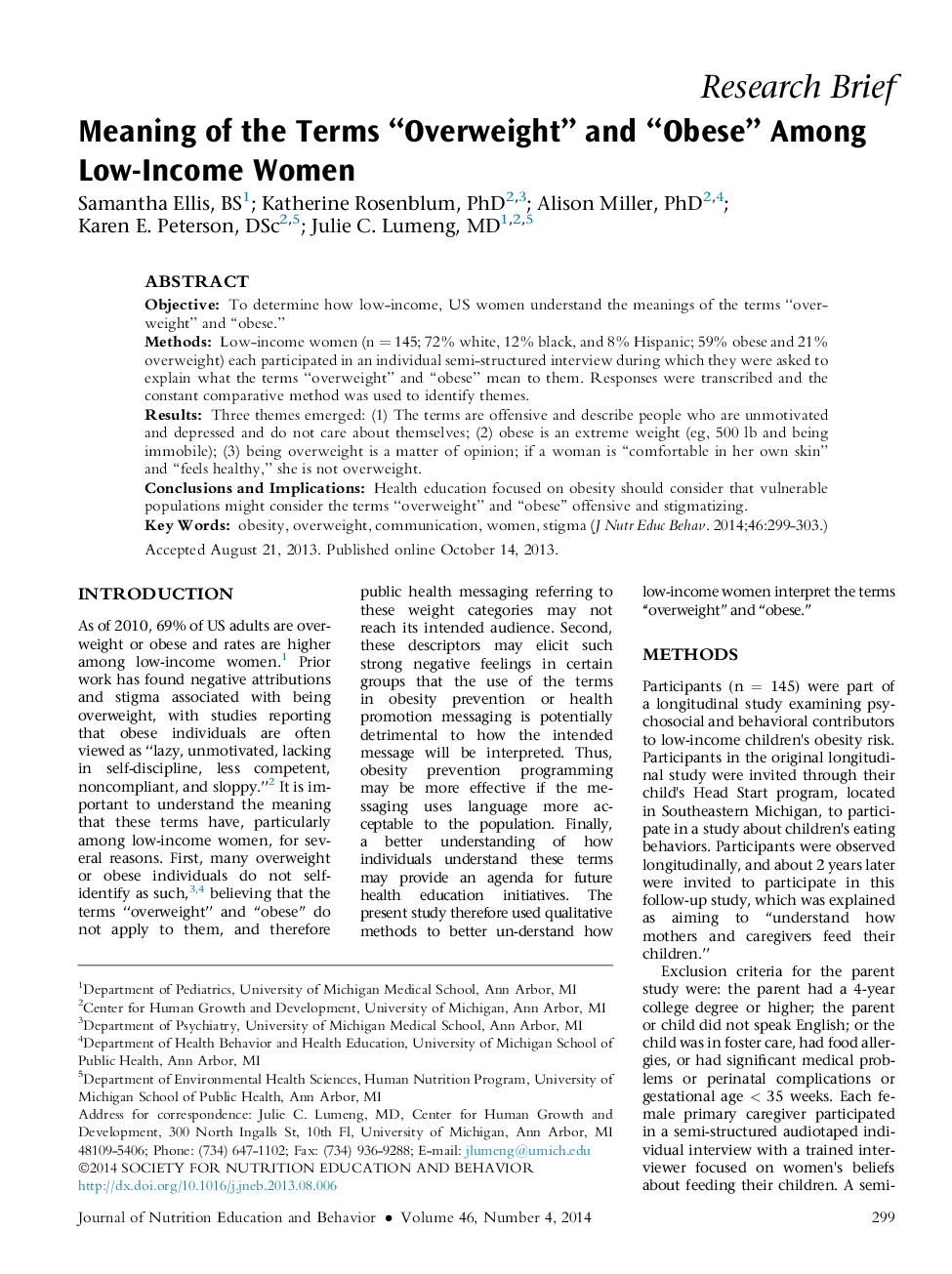| Article ID | Journal | Published Year | Pages | File Type |
|---|---|---|---|---|
| 361134 | Journal of Nutrition Education and Behavior | 2014 | 5 Pages |
ObjectiveTo determine how low-income, US women understand the meanings of the terms “overweight” and “obese.”MethodsLow-income women (n = 145; 72% white, 12% black, and 8% Hispanic; 59% obese and 21% overweight) each participated in an individual semi-structured interview during which they were asked to explain what the terms “overweight” and “obese” mean to them. Responses were transcribed and the constant comparative method was used to identify themes.ResultsThree themes emerged: (1) The terms are offensive and describe people who are unmotivated and depressed and do not care about themselves; (2) obese is an extreme weight (eg, 500 lb and being immobile); (3) being overweight is a matter of opinion; if a woman is “comfortable in her own skin” and “feels healthy,” she is not overweight.Conclusions and ImplicationsHealth education focused on obesity should consider that vulnerable populations might consider the terms “overweight” and “obese” offensive and stigmatizing.
